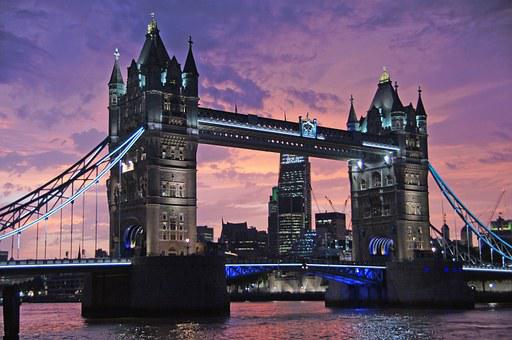Contents
Pros of Living in the UK
1. Affordable Health Care
The National Health Service (NHS) offers healthcare that starts out as free.
You can also subsidize the cost of your medication, so it may not cost as much in other countries.
UK has also partnered with the European Economic Area (EEA) countries, including Iceland, Liechtenstein, and Norway.
By the way, the UK and these three countries are not a part of the European Union.
Anyone visiting can also use the free NHS emergency services when they arrive.
2. Free Public Education
Students as young as three years old up to ages 18 can receive their education in five stages.
This starts with the early years, primary (stages 1 and 2), secondary (stages 3 and 4), and Post-16 education (stage 5).
Many of the learning institutions receive state funding, and they prepare students for achieving the International Baccalaureate® (IB), which has a similar weight to a high school diploma in America.
3. A Lively Pub and Music Scene
Liverpool still remains number one on the UK music scene list.
The Beatles is one classic British rock band that made this city famous.
The Zutons, The Wombats or La’s are a few more of many.
The Shipping Forecast, Cavern Club, or Bierkeller Liverpool are some places where live bands have played.
London comes in at number two for the liveliest music scene.
The Rolling Stones, David Bowie, Queen, Led Zeppelin, and Elton John include some big names that made this city famous.
Popular live band venues include the O2 Arena, The Union Chapel, Brixton Academy, and The Moth Club.
Other cities with lively pub and music venues include Manchester, which has featured New Order and The Smiths, and Sheffield, which featured The Human League, Def Leppard, and Arctic Monkeys.
4. A Place for Sports Lovers
Association Football (soccer) by far seems to outweigh in popularity other sports.
World Cup tournaments have taken here. Rugby, which can be described as a “rougher” form of American football, is also quite popular in the UK, and so is hockey.
Badminton, cricket, and tennis are also popular.
5. Skilled Worker Visa Opportunities
You can acquire a Visa in the UK for working in a variety of occupations, such as being a chief executive of a corporation or a production manager.
You also may find construction management, marketing, sales or advertising, and public relations director or manager positions.
Finance, hospitality, and restaurant and emergency rescue or law enforcement include some more opportunities.
Travel, leisure, sports, healthcare, and more include other sectors that you can work in if you become approved for the UK work Visa.
See the complete list of eligible positions here.
6. Easy Air and Train Access
It’s not uncommon for people to take two-hour flights in and out of UK and EU locations such as Glasgow, London, Manchester, Paris, and Amsterdam.
Other places you can quickly travel include Cologne, Geneva or Barcelona.
UK visitors and locals also frequently travel by train.
In fact, the passenger rail systems in most major cities are more advanced than in other countries, including the U.S.
People sometimes even take the train all over Europe instead of flying.
7. Not as Much Snow
Some winter days in the UK are more like autumn than they are in winter.
This area only experiences a maximum of approximately 45.4 inches (115.2 centimeters) of snow per year in Aberdeen.
Some areas measure as low as 2.1-18.3 inches (5.3-46.4 centimeters) in Tiree, Inner Hebrides, Stornoway, Outer Hebrides, and Edinburgh.
8. Holiday (Vacation) Pay
Apparently, most people would receive up to 5.6 weeks of paid time off regardless of the type of work they do.
This includes full-time and part-time positions, and it could include agency or irregular-hour positions.
If you plan to work in the UK, you can figure out your estimated paid time off entitled to you by the government if you use this calculator.
9. Purchase Prices Less Confusing
Sales tax (VAT) in the UK is usually included in the purchase price in stores.
On invoices and retail websites, you might see figures both with and without tax.
This makes life easier when shopping.

Cons of Living in the UK
1. Long Doctor Visit Waiting Lists
The UK has inexpensive, decent-quality health care.
However, you might have to wait weeks to see a doctor, nurse, or another specialist.
People working in health care, even doctors or registered nurses, do not receive as high pay as in the United States or other countries where people have private health care.
2. Strict Visa Requirements
The visa application process may seem rigorous the first time if you have never applied for a visa before.
You will want to start applying for a work visa at least six weeks before you plan to enter the UK.
If you may have outstanding requirements you need to meet, such as retrieving a lost birth certificate before you can acquire a passport or acquire other proofs of identity, you may want to start the process several months in advance.
This will give you time just in case your first attempt is denied.
3. Competitive Job Market
You will have opportunities when you enter the UK workforce with a work visa or if you become an ex-pat.
However, you may encounter some heightened competition in the logistics, hospitality, automotive, legal, or retail fields.
It also may take you some time to find the right telecommunications or media position.
4. The Brexit Politics Will Affect Travel
As of 2021, the UK no longer has EU status.
This has made traveling between the island and the rest of Europe a bit more of a challenge.
For instance, UK workers will not need to acquire a visa if they want to stay at least 90 out of 180 days.
On the other hand, the UK can now set up its own trade policies with other countries outside the EU, such as Australia, New Zealand or the United States.
5. Damp, Cold, and Gray Days
The UK does not experience as many downpours as in New Zealand, the Amazon Rainforest, or other rainy locations.
However, the damp weather often feels comfortable when cold, especially if temperatures start to drop to the water freezing point (32 degrees Fahrenheit, 0 degrees Celsius).
6. Frequent Travel Delays
This often happens with trains.
You might sometimes have a route canceled on you, which can frustrate you if you are in an emergency or on the way to work.
Delays also happen.
Delays or cancellations do not seem to happen as often with short air flights either, but they sometimes do.
It does not snow as often in the UK, so flying is sometimes more feasible than using the train.
However, the train is more relaxing.
7. Not Enough Work-Life Balance
Even though most full-time employees have at least four weeks off or more per year, it still seems like they cannot enjoy much relaxation in between those vacations.
This is especially true for people in management positions.
It could be, however, that some workers do not feel like they have a choice.
8. Propensity for Binge Drinking
UK partiers sometimes have a propensity for binge drinking.
This is especially true in Blackpool where stag and hen parties (bachelor and bachelorette parties) normally occur.
Other locations with high binge drinking rates include Stoke-on-Trend, Sunderland, and Norwich.
Additional cities that came in the top 50 but with drinking rates a little lower include Nottingham, Newcastle, Middlesborough, and Chesterfield.
Sunderland is up there too.

Pros and Cons of Living in the UK – Summary Table
| Pros of Living in the UK | Cons of Living in the UK |
|---|---|
| 1. Affordable Health Care | 1. Long Doctor Visit Waiting Lists |
| 2. Free Public Education | 2. Strict Visa Requirements |
| 3. A Lively Pub and Music Scene | 3. Competitive Job Market |
| 4. A Place for Sports Lovers | 4. The Brexit Politics Will Affect Travel |
| 5. Skilled Worker Visa Opportunities | 5. Damp, Cold, and Gray Days |
| 6. Easy Air and Train Access | 6. Frequent Travel Delays |
| 7. Not as Much Snow | 7. Not Enough Work-Life Balance |
| 8. Holiday (Vacation) Pay | 8. Propensity for Binge Drinking |
| 9. Purchase Prices Less Confusing |
United Kingdom Safety Overview
READ THE FULL REPORT: United Kingdom Safety Review
Safety Index:
- OVERALL RISK: LOW
- TRANSPORT & TAXIS RISK: LOW
- PICKPOCKETS RISK: MEDIUM
- NATURAL DISASTERS RISK: LOW
- MUGGING RISK: LOW
- TERRORISM RISK: MEDIUM
- SCAMS RISK: MEDIUM
- WOMEN TRAVELERS RISK: LOW
Frequently Asked Questions
What should I know about living in the UK?
For starters, you can read 21 Things to Know Before Moving to the UK.
It gives you an idea of what to expect before you arrive.
This list will help you before you move to the UK:
- Your English is not the same as theirs.
- You might not deliver jokes right or understand UK jokes.
- The weather can change quickly, from extreme heat to heavy downpours.
- Bring a UK dictionary with you, particularly for colloquial language.
- Beware of NHS healthcare pitfalls – free service is not always foolproof.
- Do not expect fireworks on 4th of July if you’re from America.
- You still need to file taxes in your native country (ex: the U.S.).
- “Junk” foods will taste different, which can be good if no GMOs are in them.
- Food sizes are smaller, which also can benefit if you’re trying to stay healthy.
Do you have to be a UK citizen to live there?
You do not need to be a UK citizen if you have gone through the proper government channels to work and live in this country.
Additional conditions apply if you’re from the EU or Norway, Switzerland, Iceland, or Liechtenstein.
For instance, you can live in the UK if you have a “settled status” according to the EU Settlement Scheme.
Other conditions apply, such as if you had a baby in the country.
Should I become a UK citizen?
You may not need to, but you might want to if you need a British passport or want to vote in local elections.
It will also benefit you if you want to leave whenever you want without losing your right to return or make your children if born outside the UK, citizens.
How do I apply for UK citizenship?
First, you will have to apply for indefinite leave to remain (ILR) status.
You cannot do this, however, until after you lived in the country for five years.
Once you acquire ILR status, you can apply for citizenship after 12 months.
If you already have a “settled status” according to the EU Settlement Scheme, you will also have to live in the country for 12 months to obtain it.












So you MUST stay for 1 year before you can leave? Unless I just do a study abroad and stay for a few weeks… I do not want to be trapped anywhere.
I have lived there my entire life but never been pickpocketed, Where is this coming from?
Same
Coming from an American, they probably mean that in the larger-sized cities it would be more frequent.
From tourists